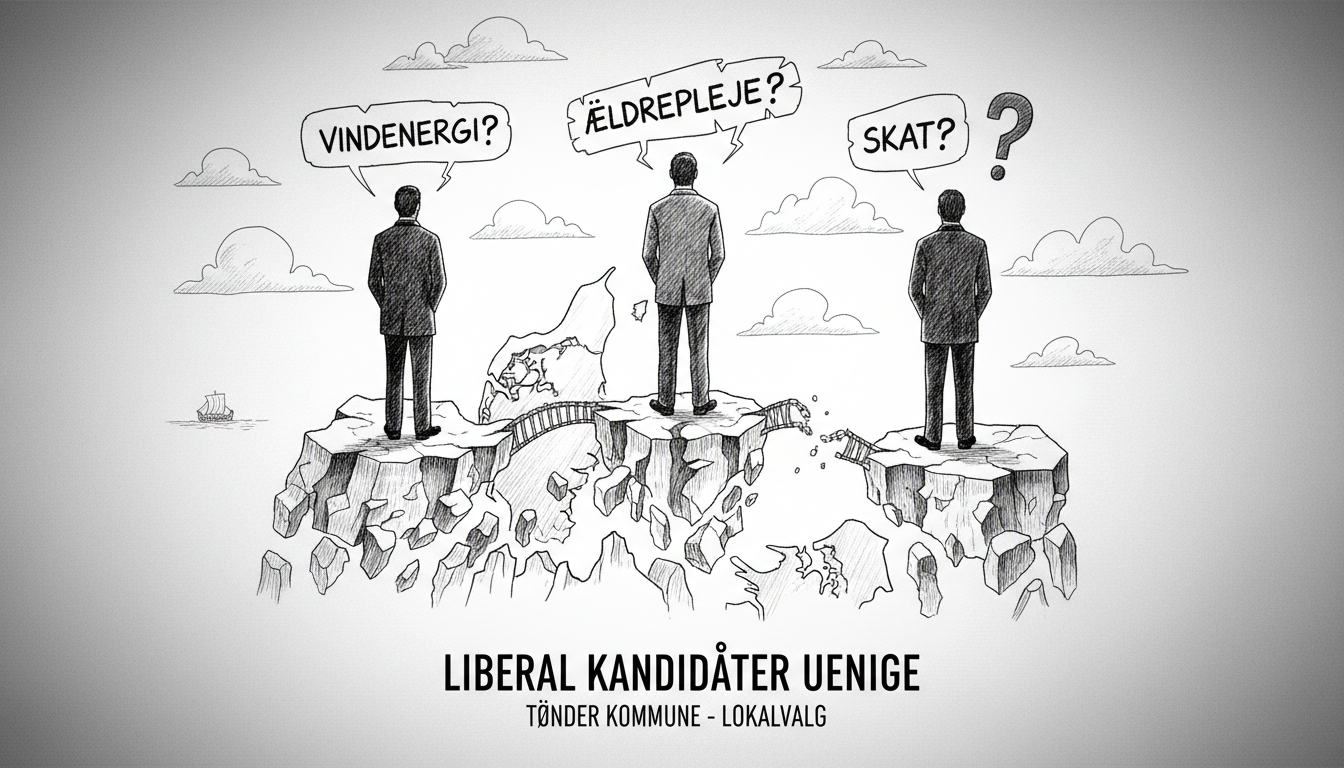Political unity appears elusive for Liberal Party candidates in Tønder Municipality as local election campaigning reveals deep divisions on fundamental policy matters. The party's representatives in Denmark's southernmost municipality disagree on renewable energy projects, school meals, elderly care, and tax policy according to recent candidate surveys.
Mayoral candidate Martin Iversen leads the Liberal Party in Tønder but acknowledges his fellow candidates hold diverse views. The disagreement spans multiple critical local issues that will shape the municipality's future direction. Candidates responded differently to questions about citizen consultations for major projects, prioritizing renewable energy despite neighbor concerns, improving elderly care without additional funding, and potential tax reductions.
Tønder has pioneered advisory citizen referendums for major wind and solar projects, an approach Iversen describes as a core principle. Yet party members express varying enthusiasm for this democratic tool. Some candidates argue elected officials should make final decisions rather than delegating to local referendums.
The political divergence extends beyond energy policy. School meal programs, class sizes in public schools, arts funding, and civil defense shelters also reveal conflicting positions among Liberal candidates. This lack of consensus raises questions about party coherence ahead of municipal elections.
Political analysts note that local politicians typically enjoy more freedom than national counterparts to express individual views. The broad spectrum of opinions within Tønder's Liberal Party might actually represent strength rather than weakness according to some observers. Diverse perspectives could help the party appeal to wider voter demographics.
Despite numerous disagreements, Liberal candidates maintain unity on several issues. They unanimously oppose closing additional local schools and agree that current municipal tax revenue gets spent responsibly. This common ground provides some foundation for coordinated campaigning.
The situation in Tønder reflects broader trends in Danish local politics where community-specific concerns often override national party platforms. Voters face the challenge of determining what exactly they support when backing a party with internal divisions. The election outcome will test whether ideological diversity strengthens or weakens a party's local appeal.
Local political dynamics in Southern Denmark demonstrate how municipal issues frequently create unexpected alliances and divisions. The Tønder case shows that party labels sometimes conceal more complex political realities that voters must navigate during election periods.

